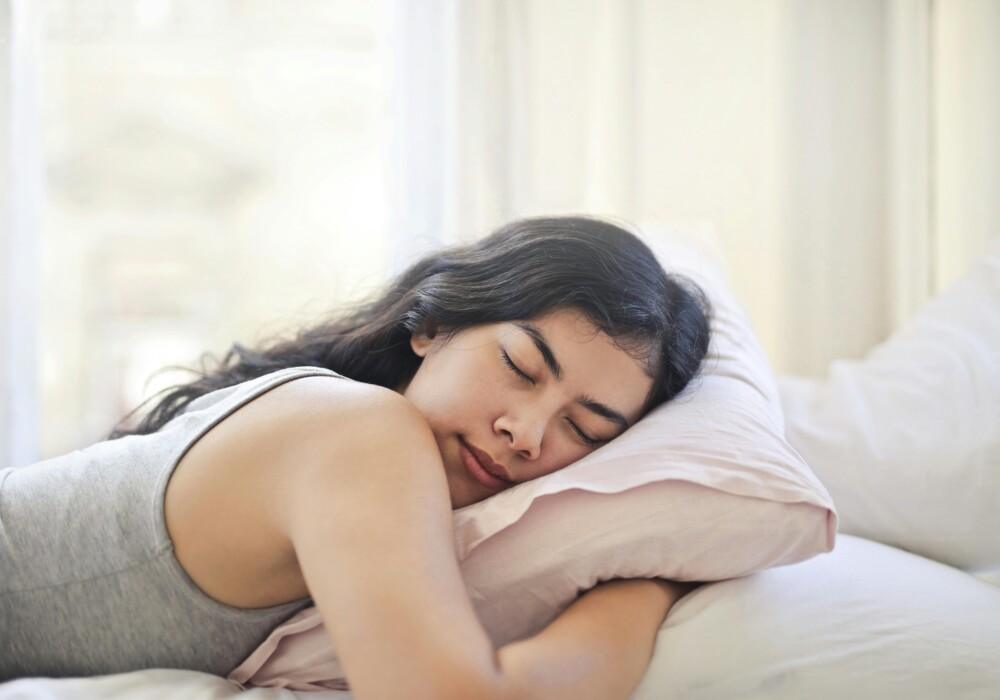How Can Natural Approaches Balance Hormones for Better Sleep in Manhattan Women?
Hormonal imbalances, such as estrogen, progesterone, melatonin, and cortisol fluctuations, disrupt sleep patterns in women. This is common during perimenopause or high-stress urban living. Naturopathic methods are effective in restoring that balance and getting a deep, invigorating rest.
Dietary strategies that include nutrient-rich foods are most effective for good hormone production and detox. Healthy fats, fiber, and magnesium sources can combat insomnia caused by a hormonal shift.
Urban pollution in Manhattan affects sleep and endocrine function. In this case, naturopathic detox protocols and natural treatment for hormonal imbalance in NYC help you wake up rested and ready to start the day.
A personalized consultation is important to ensure your body gets what it lacks.
Why Do Hormonal Imbalances Disrupt Sleep in Busy Urban Women?
Hormonal imbalances disrupt sleep in busy urban women because they cause insomnia, night sweats, and more.
Progesterone and estrogen fluctuations frequently lead to wakefulness and excess sweating, especially in menopause. High cortisol levels caused by urban stress delay melatonin production, making it difficult to fall (and remain) asleep.
Thyroid hormones also contribute to fatigue and poor sleep quality. Women with hypothyroidism feel constantly sleepy despite going to bed early, and hyperthyroidism leads to racing thoughts.
When this happens, it’s important to get perimenopause support for Manhattan women.
How Does Chronic Stress in Manhattan Affect Hormone Levels and Nighttime Rest?

Chronic stress in Manhattan affects hormone levels and nighttime rest because it increases cortisol levels. This is caused by city demands like long commutes and workplace stress, which disrupt the circadian rhythm.
Data from CNN Health shows that people living in cities are 20-40% more stressed than those residing in rural areas.
Stress buffers such as breathwork and short park meditation are effective for cortisol reduction. They can be adapted to NYC schedules, as you don’t need more than 10-20 minutes per day. A routine promotes adrenal health to prevent burnout in urban NYC, reducing hormonal sleep disruptions.
What Role Does Melatonin Play in Hormonal Sleep Regulation?
Melatonin plays an important role in hormonal sleep regulation because it signals to the body that it’s time to sleep. The pineal gland naturally produces this in response to darkness and synchronizes your evening routine with the environment.
The bad part is that the pineal gland can’t make the difference between real light and artificial/blue light exposure. As a result, keeping strong lights, watching TV, or scrolling on your phone delays melatonin production. This leads to hormone dysregulation.
Here are some natural boosters to fix that:
- Eat cherries or drink natural cherry juice before sleep
- Go for dim amber lighting
- Use screen filters
- Choose reading instead of watching TV
- Drink chamomile tea
There’s also an estrogen interaction with melatonin. Balanced levels of melatonin, estrogen, and progesterone prevent hot flashes and mood instability, making it easier to sleep.
How Can Optimizing Your Circadian Rhythm Improve Hormonal Balance for Sleep?
Optimizing your circadian rhythm improves hormonal balance for sleep because it regulates both cortisol and melatonin. This leads to better sleep onset and reduces wakefulness throughout the night.
CDC studies show that 17% of women have difficulties falling asleep at night, the main reason being hormonal imbalances.
What Morning Habits Help Reset Hormones in a City Environment?
Morning habits such as sunlight exposure and consistent wake times can reset your hormones in city environments. These boost serotonin conversion while promoting cortisol regulation.
Here are a few tips:
- Take a walk through Central Park
- Use a morning sunlight stimulation alarm
- Set up a wake window (weekends too)
- Have a morning ritual (stretching or having your tea on the balcony)
- Avoid sleeping in for more than 90 minutes
- Open blinds immediately after waking
These steps are simple but helpful for circadian rhythm optimization. The body becomes accustomed to this routine with time, and balance is restored.
Why Avoid Artificial Light at Night for Better Hormone Function?
Artificial light avoidance is important because it supports natural melatonin surges. It’s best to reduce screen time, as the brain can’t differentiate blue light from sunlight. Use red bulbs, as they don’t delay melatonin like blue ones do.
If you’re looking to keep yourself occupied, you can use journaling to unwind. 10-20 minutes a day can ease stress as you process your emotions. Consider light reading to relax, but only if it’s a book you’re sure you can put down afterward.
You can look into other stress, hormonal migraines, and remedies for NYC pros. This helps you reflect on your needs to improve sleep.
What Dietary Choices Support Hormone Detoxification and Deeper Sleep?
Fiber-rich foods and healthy fats support hormone detoxification and synthesis for deeper sleep. Avoiding sugar and caffeine also prevents hormonal sleep disruption, as both lead to a state of wakefulness. Healthy, nutritious meals are best for good sleep.
Which Fiber-Rich Foods Aid in Estrogen Metabolism for Restful Nights?
Fiber-rich foods like cruciferous vegetables and whole grains help the estrogen metabolism clear excess hormones. This adds to a restful sleep without symptoms like insomnia, night sweats, and anxiety.
Incorporate the following foods into your diet:
- Broccoli
- Brussels sprouts
- Cauliflower
- Kale
- Oats
- Quinoa
- Brown rice
Studies by Lauren Blekkenhorst at Edith Cowan University show that cruciferous vegetables reduce the risk of heart disease by 19%. This indirectly helps the body rest, as heart conditions are associated with higher cortisol levels.
Make sure to portion these foods moderately to avoid digestive issues. Consume them at lunch or an early dinner to prevent bloating or gas.
How Do Healthy Fats Influence Progesterone and Sleep Quality?
Healthy fats have a progesterone influence and improve sleep quality because they promote hormone synthesis and diminish inflammation.
Here are a couple of examples to add to your diet:
- Avocados: Rich in magnesium and monounsaturated fats
- Nuts: Almonds, Brazil nuts, and walnuts are rich in vitamin E, selenium, and omega-3
- Seeds: Sunflower, sesame. We love Beeya seeds to seed cycle to support your hormones. You can get a discount using the code Naturallysue on their website.
Add them to a smoothie, a quinoa lunch bowl, or even in a snack mix. They’re easy to grab, making them the perfect choice for busy Manhattan women.
Can Avoiding Sugar and Caffeine Prevent Hormonal Sleep Disruptions?
Caffeine and sugar avoidance prevent hormonal sleep disruptions because they balance cortisol and adenosine. Sweet and carbohydrate rich foods lead to blood sugar spikes, whereas caffeine has an adenosine-blocking effect. Since adenosine is responsible for building sleep throughout the day, the result is wakefulness at night.
Consider herbal tea alternatives for evening relaxation in a high-energy city. Chamomile and passionflower can be great for evening relaxation. Do not use passionflower if you are also taking a pharmaceuticals (benzodiazepines and SSRI’s). Green tea is good for morning energy and also helps with hormones and weight gain in NYC women.
Studies by Barbara Fuhrman at the National Institutes of Health show that a cup of green tea daily reduces estradiol by up to 20-40%. Make sure you are enjoying a cup earlier in the day so the caffeine in the green tea does not interrupt your sleep.
How Might Magnesium and Other Minerals Enhance Hormonal Sleep?
Magnesium and other minerals improve hormonal sleep because they enhance the action of GABA receptors which helps to shut down racing, anxious thoughts. Gaba also helps balance cortisol levels. This can have a similar effect as anti-anxiety meds but promotes relaxation and sleep readiness without making you feel groggy.
Consider adding the following food sources and supplements to your diet:
- Avocado
- Pumpkin seeds
- Dark chocolate (moderate amounts)
- Almonds
- Cashew
- Chia seeds
- Black beans
- Spinach
Supplements with zinc complement magnesium when you have thyroid sleep issues. That said, keep in mind that excess zinc disrupts copper levels. Mineral testing and naturopathic dosage are essential to prevent interactions. Also, zinc should only be taken with food or it can make you nauseous.
What Adaptogenic Herbs Can Calm Hormones and Promote Rest in Urban Settings?
Adaptogenic herbs like ashwagandha and holy basil (also known as Tulsi) promote rest in urban settings by modulating your stress hormones. The effect is further improved by gentle movement, such as yoga.
Does Ashwagandha Reduce Cortisol for Better Sleep Amid City Stress?
Ashwagandha has adaptogenic properties that can diminish high cortisol levels raised by chronic city stress. The root lowers nighttime alertness while improving sleep latency, which is the time it takes for you to fall asleep.
Surveys on Glamour UK showed that ashwagandha improved sleep time by up to 25 minutes. Enjoy its cortisol-lowering properties in the form of tea or capsules, which is convenient for on-the-go Manhattan women.
In our experience…
Some people feel more alert when taking ashwagandha before bed. See what works for you and if taking in the day helps maintain good day time energy and then restful sleep. Trial and error to see what is the best combination for you.
How Effective Is Black Cohosh for Menopausal Hormonal Insomnia?
Black cohosh has estrogen-modulating effects that ease hot flashes and night awakenings in as little as 6 to 12 weeks. Consistent treatment is necessary to reduce vasomotor symptoms.
The herb also influences serotonin receptors, making it effective in cycle syncing for energy in Manhattan women.
Black cohosh effectiveness is high but use it with caution if you have hormone-sensitive issues or liver concerns. Always consult a naturopath before undergoing treatment. The plant is frequently combined with valerian root, chaste berry, and passionflower.
Always talk to your doctor about any pharmaceutical interactions of any new herbs you want to try.
Can Gentle Movement and Yoga Regulate Hormones for Improved Sleep?
Gentle movement and yoga regulate hormones for improved sleep by stimulating the parasympathetic response. This lowers cortisol levels and prepares the body for deeper sleep.
Below are some postures that can be added to bedtime sequences in small NYC apartments:
- Child’s Pose: Forehead on the ground, knees wide, arms stretched in front
- Leg-Up-the-Wall: Back and head on the floor with legs up the wall
- Reclined Butterfly: Lying on back with the soles together and knees open
- Corpse Pose: Flat on your back with arms at your side, palms up
Consider walking through urban green spaces like Central Park or the High Line. Studies at the University of Michigan show that nature exposure reduces cortisol levels by 18.5% per hour, which makes longer walks beneficial.
How Does Gut Health Tie into Hormonal Balance and Sleep Patterns?
Gut health ties into hormonal balance because the microbiome influences serotonin and melatonin precursors. Serotonin is a precursor made from melatonin, and since 90% of serotonin is made in the gut, dysbiosis significantly affects sleep.
Leaky gut can also occur after toxin accumulation over time, increasing the risk of estrogen dominance. Hormonal imbalances can contribute to poor quality sleep.
Remember compromised gut health can also be a hidden cause of acne as well.
If you can tolerate them, consider adding probiotic foods to your diet, such as fermented vegetables, plain kefir, or miso. This can help rebalance the gut after an urban diet with processed foods.
What Essential Oils and Aromatherapy Aid Hormonal Relaxation Before Bed?
Essential oils like lavender and chamomile aid hormonal relaxation before bed when used as aromatherapy. Opt for inhalation or diffusion for cortisol reduction, but you can also apply it topically. Just make sure to dilute with a carrier oil like jojoba.
Our doctors like Doterra and Young living. Naturopaths recommend brands that are committed to purity and quality control. This applies when you want to combine essential oils with baths for deeper support. If you can’t find these brands, opt for ones that are organic.
How Can Journaling and Mindfulness Address Emotional Hormonal Sleep Barriers?
Journaling and mindfulness address emotional, hormonal sleep barriers by identifying triggers. This can be anything from urban stress to PMS triggers. Depending on the root cause, you can write down symptoms such as acne, migraines, hot flashes, and so on.
Consider mood tracking prompts like “what emotion did I feel today?” or “what did I notice most today?” If the symptoms are physical, consider hormones and skin care for women to address the root cause.
Why Seek Naturopathic Guidance in NYC for Personalized Hormone-Sleep Plans?
You should seek naturopathic guidance in NYC when you don’t see sleep improvement despite your efforts. Personalized plans and natural treatment for hormonal imbalance in NYC include targeted diets, herbs, and lifestyle adjustments.
Manhattan women who face urban pollutants and a stressful pace benefit the most from this. Whether you need hormone testing or targeted treatment, a naturopath goes beyond conventional care. It finds the root of the problem to promote long-term wellness.
Frequently Asked Questions About Hormone Balance and Sleep
Has Anyone Found Natural Relief for Hormonal Insomnia Struggles?
Yes, many women found hormonal insomnia relief with yoga, CBD, and inositol. These reduce wakefulness throughout the night and calm the nervous system. Pair them with some essential sleep adjustments like dimmed lights, cool sleeping environments, and perhaps noise-cancelling earplugs.
What Supplements Work Best Specifically for Menopausal Sleep Issues?
Magnesium glycinate, melatonin, and black cohosh are great menopausal supplements, based on community feedback. They reduce restlessness and regulate the circadian rhythms, decreasing wakefulness. Make sure to get professional oversight for interactions, especially if you’re on hormone treatments or SSRIs.
Can Natural Remedies Help Decrease Estrogen Dominance Affecting Sleep?
If someone has true estrogen dominance confirmed on lab or DUTCH test, they can consider DIM and or sulphophane, fiber and also reduce or eliminate dairy. This helps with PMS-related insomnia and inflammation. Make sure to monitor your symptoms in case adjustments are necessary.
How Do I Fix Disrupted Sleep During Hormonal Transitions Like Perimenopause?
A good fix for disrupted sleep during perimenopause and more includes consistent routines, herbal teas, and estrogen-supporting foods. Try some chamomile before sleep and meals with flaxseed and cruciferous vegetables during the day. Avoid screens, as they suppress melatonin production. Some patients do well on BHRT (Bio-identical hormone replacement) which they can talk to their doctor about. Progesterone deficiency happens to cause anxiety and insomnia in women and taking the appropriate dosage prescribed by your doctor before bed can help significantly.
Is There a Connection Between Diet and Hormonal Imbalance Causing Poor Sleep?
Yes, poor diets cause inflammation and affect hormones such as insulin, melatonin, and cortisol. Anti-inflammatory eating with Mediterranean-style meals that include omega-3s and antioxidants balances these issues. Consider tracking meals to see how they impact your rest. Naturally Sue Wellness has a nutrition and health coach to help you meal plan, keep you accountable and get on track with your nutrition. You can request a free consult with Cristina to see if she is the right fit!







